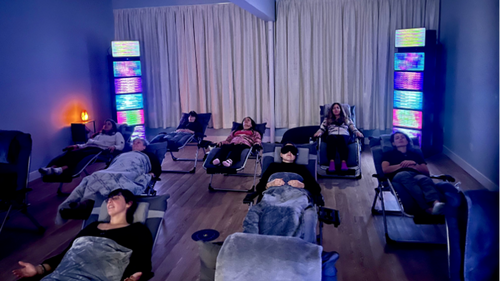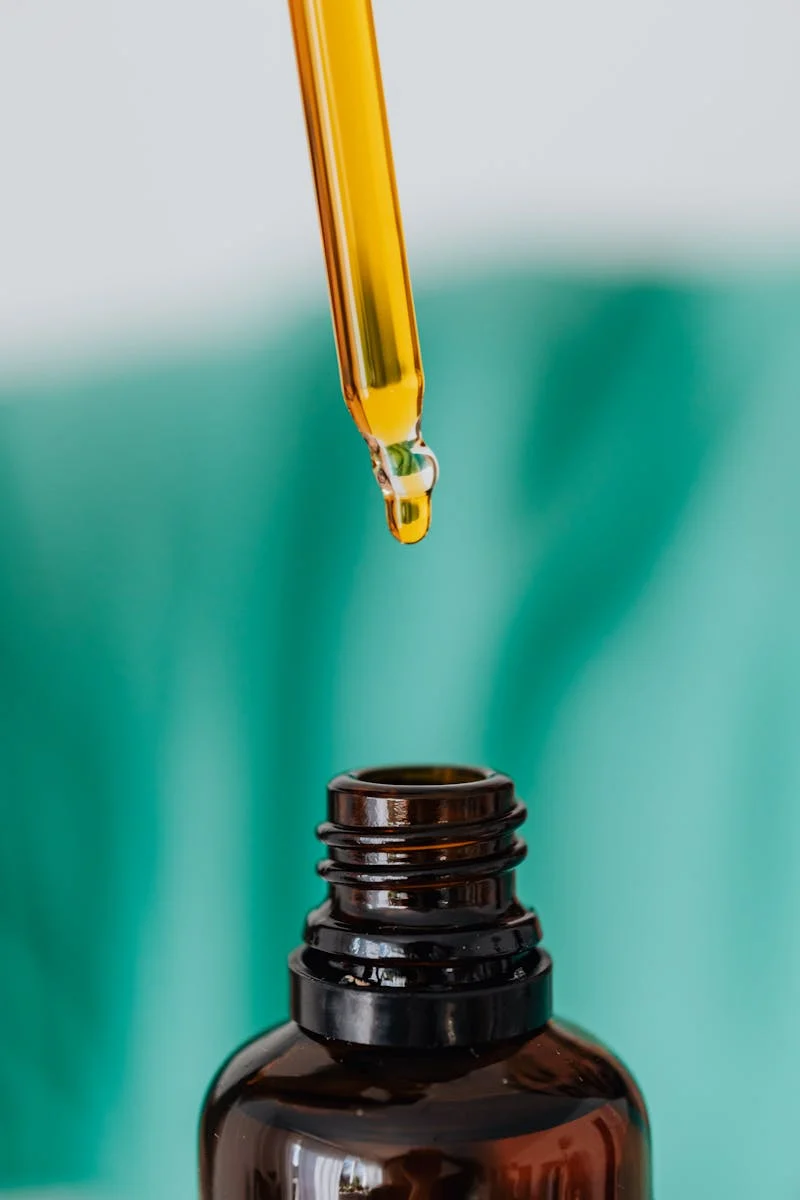Bone Broth Collagen for Stronger Bones and Bone Density
What is Bone Broth Collagen?
Bone broth collagen is a nutrient-rich substance that’s derived from simmering animal bones (often from chicken or beef) along with connective tissues over a long period. This process breaks down the bones and releases collagen, minerals, amino acids, and other essential nutrients into the broth. Collagen from bone broth is especially beneficial because it includes types I and II collagen, which are the primary types needed for skin elasticity, joint health, and—crucially—bone density. Unlike standard collagen supplements, which may focus on just one collagen type or be isolated from other nutrients, bone broth collagen offers a more holistic package. It contains calcium, magnesium, phosphorus, and glucosamine—all key nutrients that work together to support bone health. Editor’s note: The efficacy of bone broth in promoting joint health and not been universally confirmed. It is worth noting that some bone broth may contain lead and therefore moderate or limited use of bone broth is recommended until lead levels in bone broth can be established. Please discuss with your medical provider. Children and pregnant individuals should be especially cautious as lead is toxic to the developing brain (more…)The Basic Recipe
The simplest tallow balm combines two main ingredients: 1 cup grass-fed beef tallow 1/4 cup olive oil Optional: 48 drops of essential oils (1% dilution) (more…)The Mind-Body Connection: How Mental Health Impacts Physical Wellness
Can Wellness Practices Improve Outcomes in Addiction Recovery?
The Medical Benefits of Wellness-Based Addiction Treatment
Incorporating wellness practices into addiction recovery has shown promising outcomes in various studies. Wellness practices are not just about feeling good; they have tangible medical benefits that enhance physical health, mental clarity, and emotional stability, all of which are critical in maintaining long-term sobriety. Substance abuse often wreaks havoc on the body and mind, leading to nutritional deficiencies, weakened immune systems, and deteriorated mental health. Wellness-based treatments, such as balanced nutrition and fitness, help reverse these effects, allowing the body to heal faster. Additionally, stress management techniques like mindfulness meditation and yoga have been proven to lower relapse rates by improving emotional regulation and reducing anxiety.Understanding Your Human Design Chart: The Basics of Personal Blueprint
 The Human Design chart, at its core, is a graphical representation that illustrates how you are designed to engage with the world. It involves intricate details, like your 'Type,' which is one of the most fundamental aspects of your chart. This Type outlines your role in life and how you best interact with others. It also includes your 'Profile,' a combination of numbers that shed light on your persona and how you walk through the world.
(more…)
The Human Design chart, at its core, is a graphical representation that illustrates how you are designed to engage with the world. It involves intricate details, like your 'Type,' which is one of the most fundamental aspects of your chart. This Type outlines your role in life and how you best interact with others. It also includes your 'Profile,' a combination of numbers that shed light on your persona and how you walk through the world.
(more…)1. Start Your Day with Mindful Breathing
Beginning your day with a few minutes of mindful breathing can set a positive tone. Mindful breathing helps ground you, making it easier to stay focused and calm as you go about your day. Sit or lie down in a quiet spot, close your eyes, and breathe deeply for a few minutes, focusing only on your breath. This small practice can make a noticeable difference in your ability to manage stress. It encourages you to slow down and become more aware of your thoughts and emotions. When mornings feel rushed or chaotic, mindful breathing can help you regain a sense of balance. (more…)Top 11 Potential Health Benefits of Grass-Fed Bovine Colostrum
 Did you know that the dietary supplements market is projected to cross $248.4 billion by the end of 2036? This reflects the growing interest in natural health products.
One product gaining attention is grass-fed bovine colostrum. Bovine colostrum is the first milk produced by cows after giving birth. It's packed with bioactive compounds and nutrients that offer numerous health benefits.
In this article, we will explore the health benefits of grass-fed bovine colostrum. Read on to uncover how this powerful supplement can boost your immunity and health.
Grass-fed bovine colostrum is not an FDA tested or approved product and may have side effects.
Benefits listed have not been independently studied or verified.
Please see Editor's note below.
(more…)
Did you know that the dietary supplements market is projected to cross $248.4 billion by the end of 2036? This reflects the growing interest in natural health products.
One product gaining attention is grass-fed bovine colostrum. Bovine colostrum is the first milk produced by cows after giving birth. It's packed with bioactive compounds and nutrients that offer numerous health benefits.
In this article, we will explore the health benefits of grass-fed bovine colostrum. Read on to uncover how this powerful supplement can boost your immunity and health.
Grass-fed bovine colostrum is not an FDA tested or approved product and may have side effects.
Benefits listed have not been independently studied or verified.
Please see Editor's note below.
(more…)Benefits of Mindfulness for Enhancing Mental Health
Mindfulness-based therapy has also shown significant benefits in promoting emotional resilience. Mindfulness affects cognitive processes by improving metacognitive awareness, helping...
The Foundation of Personal Health Awareness
Everyone has unique health needs, making it vital to tailor your approach accordingly. Begin by assessing the following areas:- Nutritional needs: What types of foods fuel your body and mind?
- Fitness levels: Are you incorporating movement into your day?
- Mental state: How do you handle stress and maintain emotional well-being?
- Preventative care: Are you proactive about your health screenings and check-ups?
Natural Supplements for Better Prostate Health: A Comprehensive Guide

Why Prostate Health is Important
The prostate is crucial for producing seminal fluid, which helps transport sperm during ejaculation. Over time, the prostate may enlarge, leading to conditions like benign prostatic hyperplasia (BPH), or even develop into more severe conditions like prostate cancer. Prostate health directly impacts urinary function and quality of life, making it a critical aspect of men’s health that shouldn’t be ignored. Symptoms such as frequent urination, especially at night, difficulty starting or stopping urination, and weak urine flow are common indicators of prostate issues. Addressing these symptoms early with lifestyle changes and natural supplements may prevent more serious complications in the future. (more…)The Evolving Landscape of Oxygen Therapy: Recent Advances and Their Impact on Patient Outcomes
Historical Context of Oxygen Therapy
Oxygen therapy began as a crucial intervention for treating respiratory conditions. Early on, it was used primarily in hospitals with basic equipment, often involving cumbersome tanks and limited delivery systems. As technology progressed, so did the methods of oxygen delivery. In the past, oxygen was administered mainly through large, stationary tanks. These setups were not always practical for patients needing ongoing therapy at home. The early technologies had significant limitations, including bulkiness and high costs. The evolution from these basic methods to more sophisticated systems marks a significant shift in patient care.] (more…)Disclaimer: Encer is a homeopathic product has not been evaluated by the Food and Drug Administration for safety or efficacy. FDA is not aware of scientific evidence to support homeopathy as effective.
In the diverse and evolving field of complementary and alternative medicine, homeopathy has established a distinct presence. Encer - a homeopathic medicine used for its potential in managing cancer-related fatigue (CRF), a prevalent and debilitating symptom affecting individuals diagnosed with cancer.What is Encer
Encer is a homeopathic remedy designed with a blend of highly diluted natural substances. Following the homeopathic principle of "like cures like," it is formulated to stimulate the body's self-healing mechanisms. Despite the absence of Encer in mainstream pharmacological references, as it's a concept perhaps more familiar within homeopathic circles, its use is aimed at providing a non-toxic, gentle treatment option for managing the symptoms of cancer and its treatment, including CRF. (more…)What is Ayurveda?
Integrating ancient understanding with modern medical validation can bridge the space between conventional and present-day techniques to health....
A Guide to Holistic Health: Lifestyle Changes for Long-Term Wellbeing
How to Incorporate Natural Products Into Your Daily Routine
Here’s How to Prioritize Your Well-Being with Holistic Wellness Practices
Exploring the Benefits of Traditional Chinese Medicine for Digestive Health
- Rapid Hydration
- Immediate Rehydration: IV therapy is highly effective for rehydrating the body quickly, especially after intense physical activity, illness, or dehydration.
- Electrolyte Balance: Restores essential electrolytes, which are vital for maintaining bodily functions.
What Are Essential Oils?
Essential oils are concentrated extracts from plants that preserve their natural aroma and beneficial properties. They are derived from different parts of plants, including flowers, leaves, stems, and roots, through processes such as cold pressing, steam distillation, or solvent extraction. Unlike synthetic fragrances, which are created from artificial compounds, essential oils are entirely natural and contain the essence of the plant's fragrance and medicinal properties. Essential oils, being highly potent, require careful handling. They typically need to be diluted with a carrier oil, such as coconut, jojoba, or almond oil, before application to the skin. Essential oils can be used in a variety of ways, including inhalation, topical application, and, in some cases, ingestion. However, it’s crucial to use them correctly to avoid adverse reactions and to ensure their effectiveness. This caution and responsibility in usage is key to reaping the benefits of essential oils. Allergic reactions to essential oils can also develop. (more…)Beat the Heat: Managing Varicose Veins in Summer
While home remedies and lifestyle changes can help manage varicose veins, there are times when it's important to consult a...
Tips for Integrating Holistic Healthcare Solutions Into Traditional Medical Practices
 dern medicine and ancient wisdom. This integration is not just about adding new services, but about a fundamental transformation in the way we approach healing and well-being. Adopting a holistic view in healthcare can lead to improved patient outcomes and satisfaction while potentially reducing overall healthcare costs. Innovations in holistic healthcare are expanding rapidly, and staying informed about the best practices is crucial for healthcare providers. Below, we delve into the practical steps for seamlessly blending these diverse healthcare modalities into standard practice.
A patient-centered approach is key to holistic healthcare, where the focus is on the whole person, addressing physical, emotional, and spiritual health. Healthcare providers should respect and consider patient preferences, fostering transparent dialogue about the benefits and limitations of traditional and holistic practices to build trust and enhance treatment adherence.
Creating dedicated spaces for therapies like meditation and yoga in clinics can aid in stress reduction and emotional well-being, complementing medical treatments. Training frontline staff to provide information on holistic alternatives and keeping physicians updated through resources like ECRI holistic healthcare solutions can cultivate an inclusive and supportive healthcare environment.
(more…)
dern medicine and ancient wisdom. This integration is not just about adding new services, but about a fundamental transformation in the way we approach healing and well-being. Adopting a holistic view in healthcare can lead to improved patient outcomes and satisfaction while potentially reducing overall healthcare costs. Innovations in holistic healthcare are expanding rapidly, and staying informed about the best practices is crucial for healthcare providers. Below, we delve into the practical steps for seamlessly blending these diverse healthcare modalities into standard practice.
A patient-centered approach is key to holistic healthcare, where the focus is on the whole person, addressing physical, emotional, and spiritual health. Healthcare providers should respect and consider patient preferences, fostering transparent dialogue about the benefits and limitations of traditional and holistic practices to build trust and enhance treatment adherence.
Creating dedicated spaces for therapies like meditation and yoga in clinics can aid in stress reduction and emotional well-being, complementing medical treatments. Training frontline staff to provide information on holistic alternatives and keeping physicians updated through resources like ECRI holistic healthcare solutions can cultivate an inclusive and supportive healthcare environment.
(more…)It's never a good idea to start with challenging physical activities from the outset. Doing so will only result in...



















